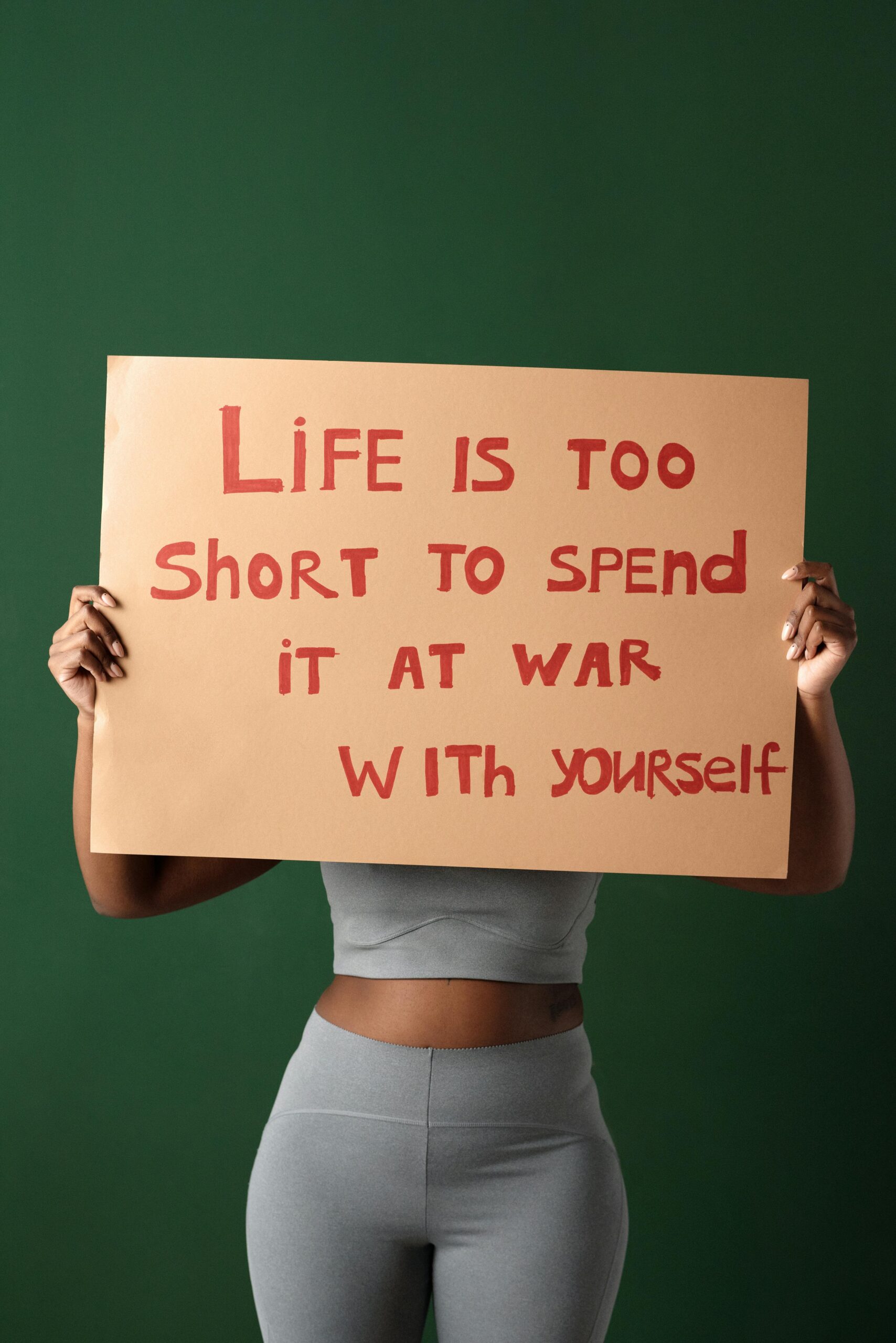There’s no easy strategy for learning how to like yourself, especially if you’re not sure of your identity.
While your identity can evolve, many parts will stay the same throughout your life. Most ideas and feelings that we have about ourselves are fluid, but some can feel impossible to change. Many of us don’t realize that our identities can evolve. Instead, we believe that we’re stuck as we are.
If you’re a mixed woman, I want you to know that you deserve self-love and respect. Maybe it’s difficult to see that right now.
I see myself as a vivid and bright light, but I didn’t always have this view of myself. It wasn’t until my late 20s that I began to understand the greatness within me. It took a lot of work. I had to fight through storms and waves to come to this realization. I focused my efforts on having deeper conversations with God, reading more about cultural differences and empowerment, and getting curious about who I was. Through all this, I learned what it means to be myself and to live at my highest potential.
If this transformation sounds like a far-away dream for you, please keep reading. Liking yourself is a lifetime journey. There’s no right way to do it. Give yourself some grace if you don’t like yourself yet. You might have to learn how to like yourself for several reasons.
Why You Might Need to Figure Out How to Like Yourself
There are so many reasons you might not like yourself. Our identities are shaped throughout childhood. However, internal and external factors continue to have an impact on our identities for the rest of our lives.
Think back to your early childhood years. Do you remember birthday parties, lullabies, and storytelling? In moments like these, your identity was in bloom.
I was reading encyclopedias by the time I was three. Do you think that contributed to my becoming Dr. KayLa? Of course, it did! As another example, I valued celebratory moments and loved to share wisdom and affection as a child. I still love showering those closest to me with love and gentle nudges in their celebratory moments and challenging times. While we may not think about some of these small moments, they are hugely influential.
In my recent blog, I talked about the different stages of identity development. I went over how your identity development starts in your first year of life and is shaped by your:
– Home environment (parents, siblings, and other family)
– Interactions with classmates and other children your age
– Experiences with other authority figures (such as teachers)
We learn from others and take on certain thoughts, feelings, and attitudes, especially from parents or guardians. They show us who they are from their words and actions, which influences the way we see and treat ourselves. We’re influenced by every decision, such as how our guardians communicate, or don’t communicate with us. How they behave during stressful times and the way they talk to themselves and others is information that we take in, and often adopt.
You might not like yourself because of your experiences in childhood and adolescence. This is usually the case with trauma and other formative events.
Trauma and Low Self-Esteem
Childhood trauma is linked with low self-esteem. When parents or guardians neglect or mistreat a child, it leads to insufficient relationship and attachment formation¹. While mistreatment may not take the form of verbal abuse, we can interpret others’ behavior. Children can internalize their guardian’s actions and form beliefs about themselves based on that behavior.
If you’ve been treated like you don’t deserve love, it can be challenging to learn how to like yourself. However, it’s still possible.
I was exposed to abuse as a child in several forms. While that played a role in who I am and what I thought love should be, I still learned to like and love myself.
You can too.
Bullying, Exclusion, and Identity Confusion
You might not like yourself if you’ve been the victim of bullying.
I experienced my fair share of bullying. It took me a while to learn that I didn’t have to be bound by my experiences and that I could form my own view of myself and my worth. However, it’s essential that we understand our environments and experiences often shape us. There’s no need to feel ashamed if you haven’t taken control of your identity and learned how to like yourself.
Being excluded is another factor that can affect your view of yourself.
When individuals feel peripheral and like they don’t fit in, their self-uncertainty increases². Many mixed women deal with this when their peers treat them like they’re not enough of one race or culture. This can lead to an identity struggle and low self-esteem. It can also lead to an increase in desire to fit in, but some feel incapable of taking initiative and asserting themselves. As I mentioned, it took me until my 20s to start questioning my feelings toward myself and how treatment from others had led to this delay in realizing my identity.
I know a lot of mixed women struggle with figuring out who they are. Let’s talk about the challenges we face that contribute to this.
Challenges to Your Identity as a Mixed Woman
Self-love and respect are not only being aware of who you are but also being proud of your identity. If you find yourself only wanting to identify with part of who you are, consider why this is the case. You’re likely limiting your potential by denying your truth.
Becoming an adult and stepping into new spaces is hard enough. Being a mixed woman only adds to the challenge.
As a mixed woman, you might face discrimination in the workplace, such as the expectation that you’ll be more “hostile” compared to your coworkers³. However, as we talked about earlier, you might also be holding onto a mindset that you’re unworthy or incapable due to certain experiences. These internal and external factors can make it difficult for you to be yourself and reach your potential.
It’s important to remember that no one can pre-determine who you are or who you’re supposed to be. The sooner you embrace your truth, the sooner you can respect yourself and demand respect from others.
How to Like Yourself as a Mixed Woman (You Can Cultivate Self-Love)
Learning how to like yourself is important for so many reasons. Your health, happiness, and professional success depend on it. If you’re a mixed woman, you may have others implying, or telling you directly that you’re not enough, incapable, or unworthy.
If you don’t see the value of learning how to like yourself, consider the effects on your children and grandchildren (if you have them). Becoming a parent or a grandparent is one of the major life events that causes individuals to consider their ethnic-racial identity⁴. This isn’t surprising, considering that the way you view and treat yourself impacts how your children will view and treat themselves.
Liking and loving yourself benefits you and those closest to you.
So if you don’t like yourself, you can start taking these steps.
Take time to be alone and reflect.
Spending time with yourself and learning about loving yourself is the first step to becoming who you want to be. You can’t figure out who you are and who you want to be if you don’t try to understand yourself.
I like to take time to reflect on myself, my accomplishments, my faith, and how I love. These things are a big part of my life and my identity.
Practice gratitude and positive self-talk.
It takes a lot of work to unlearn and reframe your negative beliefs about yourself.
Start by thinking of small things you like about yourself. Tell yourself (out loud) what you appreciate.
You can’t learn to like yourself if you continue talking to yourself like you’re unworthy of love and respect. When you notice you’re thinking about yourself in a negative light, try to show yourself compassion and grace like you would a loved one.
Work with a professional
When you’ve been walking through life letting others define you, it can be challenging to differentiate between what’s true and what’s not. It can also be difficult to identify how you’re holding yourself back. Eliminating unhelpful thinking and behavioral patterns is intimidating when you’re on your own.
If you don’t like yourself but want to achieve more and be happy, you have some work to do. I can support you as you navigate the healing process and figure out how to like yourself. Reach out to Dr. KayLa N. Allen, a multicultural women’s coach, if you’re a mixed woman who needs confidence, support, accountability, and compassion.
Dr. KayLa N. Allen is an International Motivational Speaker, Thought Leader, Women’s Transformational Coach (Diversity and Identity Coaching) – Certified Health and Well-Being Coach (for Women), a Healthcare Leadership Development Consultant, a DEI (Diversity, Equity, and Inclusion) Leader and Coach via Dear Mixed Girl, and an Expert on Shaping Thriving Futures. Learn more about her services and how you can begin your journey through business and personal evolution/personal development by clicking the button below.

